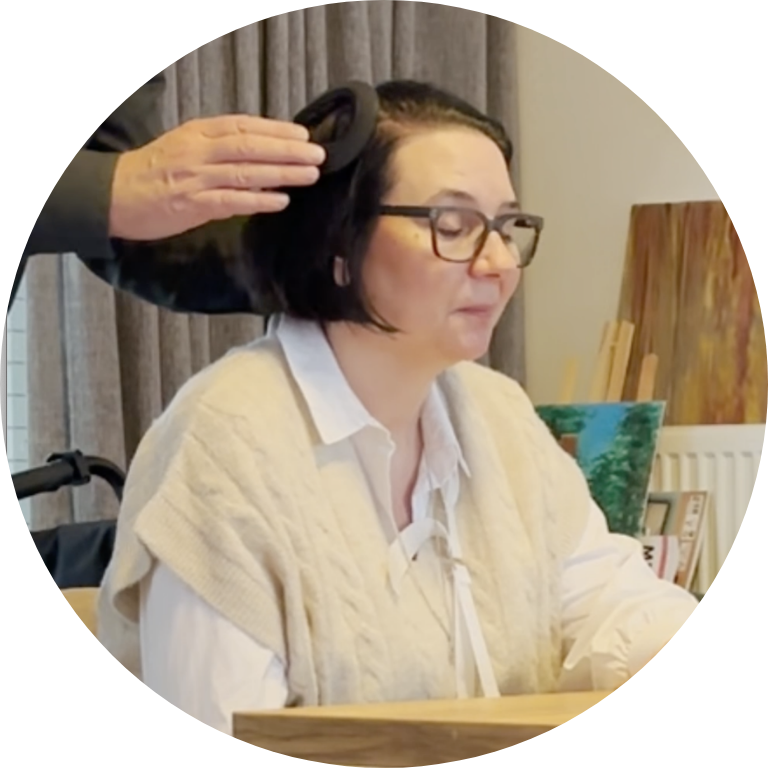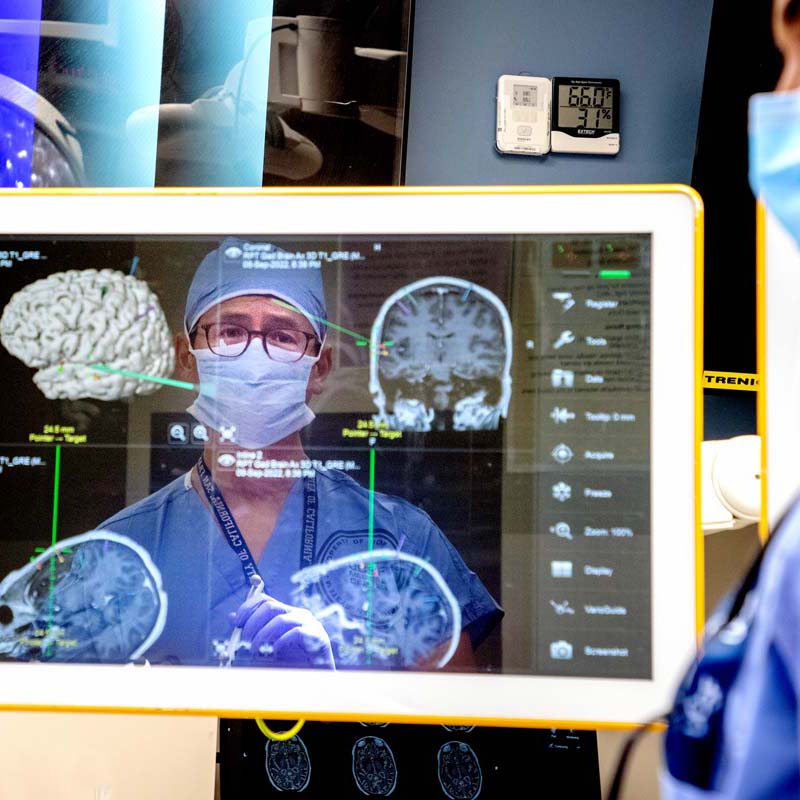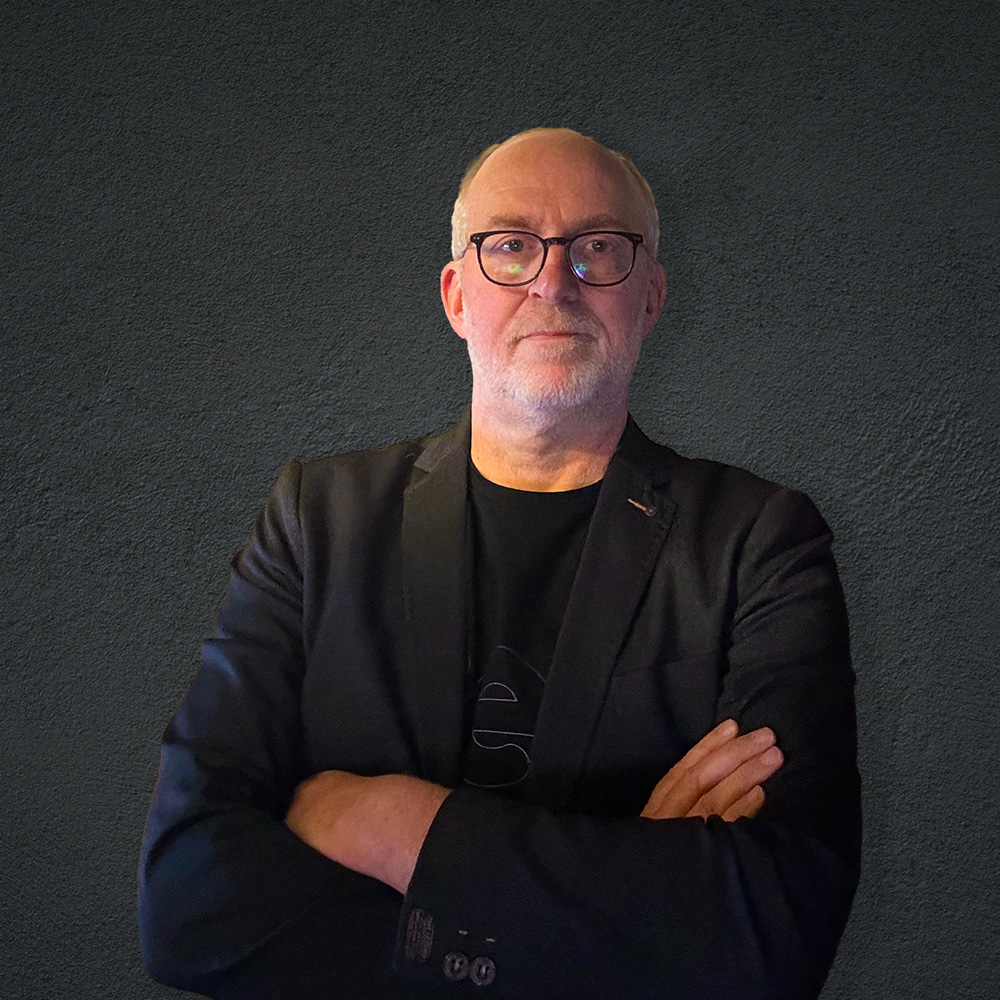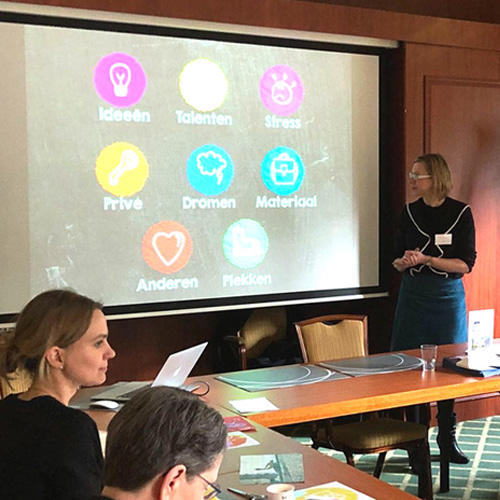concept
re:cognition = re:connection
We use our voice to connect with others. With a family member, spouse, a good neighbour or distant friend. We tell them we love them, ask for help, hand out compliments or chat about the weather. So our voice fulfills a basic need.
Speaking, however, does not come naturally to everyone. Some people have lost their ability to speak as a result of brain damage, and with it (part of) the connection with their environment.
re:cognition tries to restore this connection.
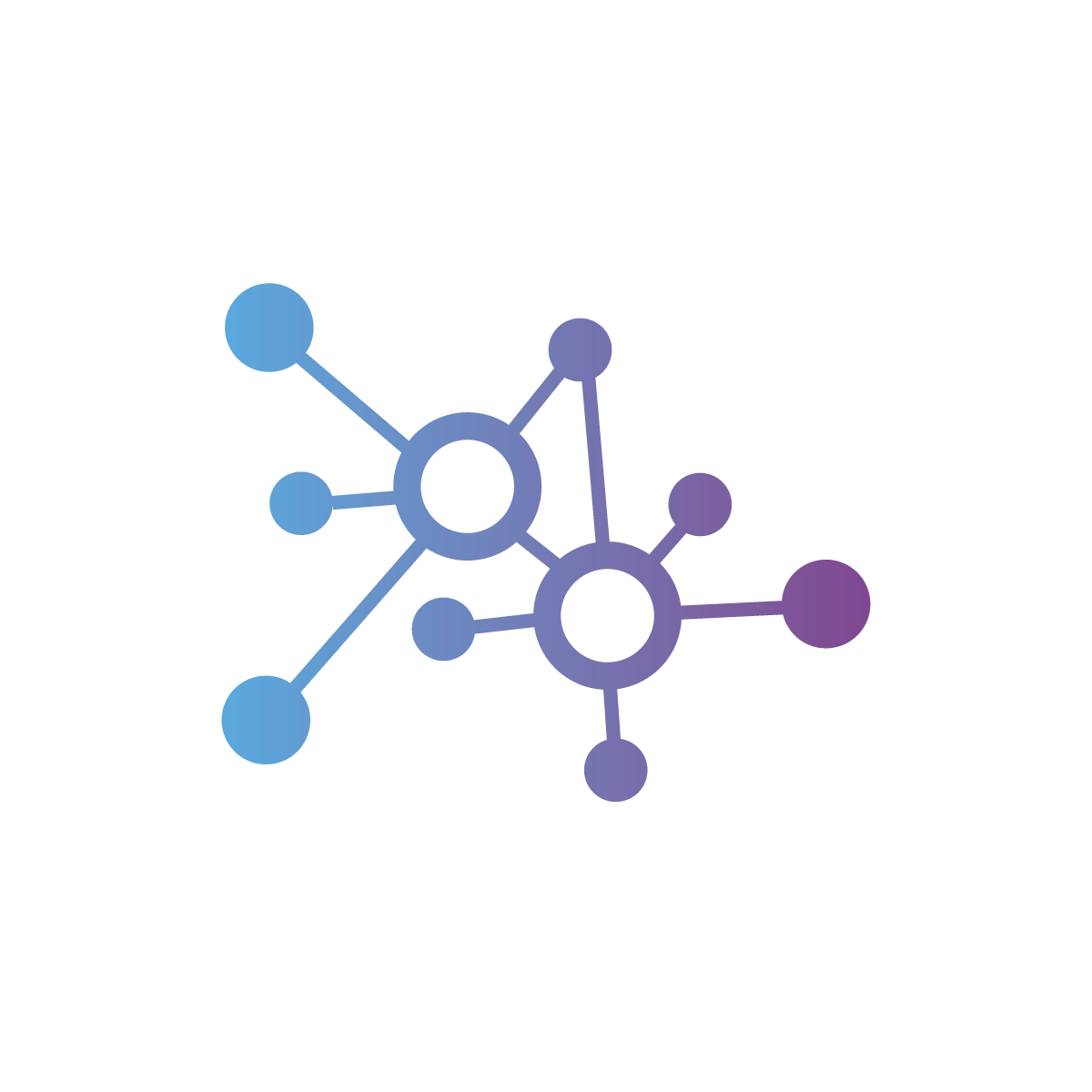
thought to speech
Using a mobile EEG - the Crown - and a smart app, thoughts are converted into text and speech. This allows people with limited speech to participate in society in the way they want. An evening out to the pub with friends, ordering a loaf of bread from the bakery.
re:cognition opens worlds that previously remained closed.
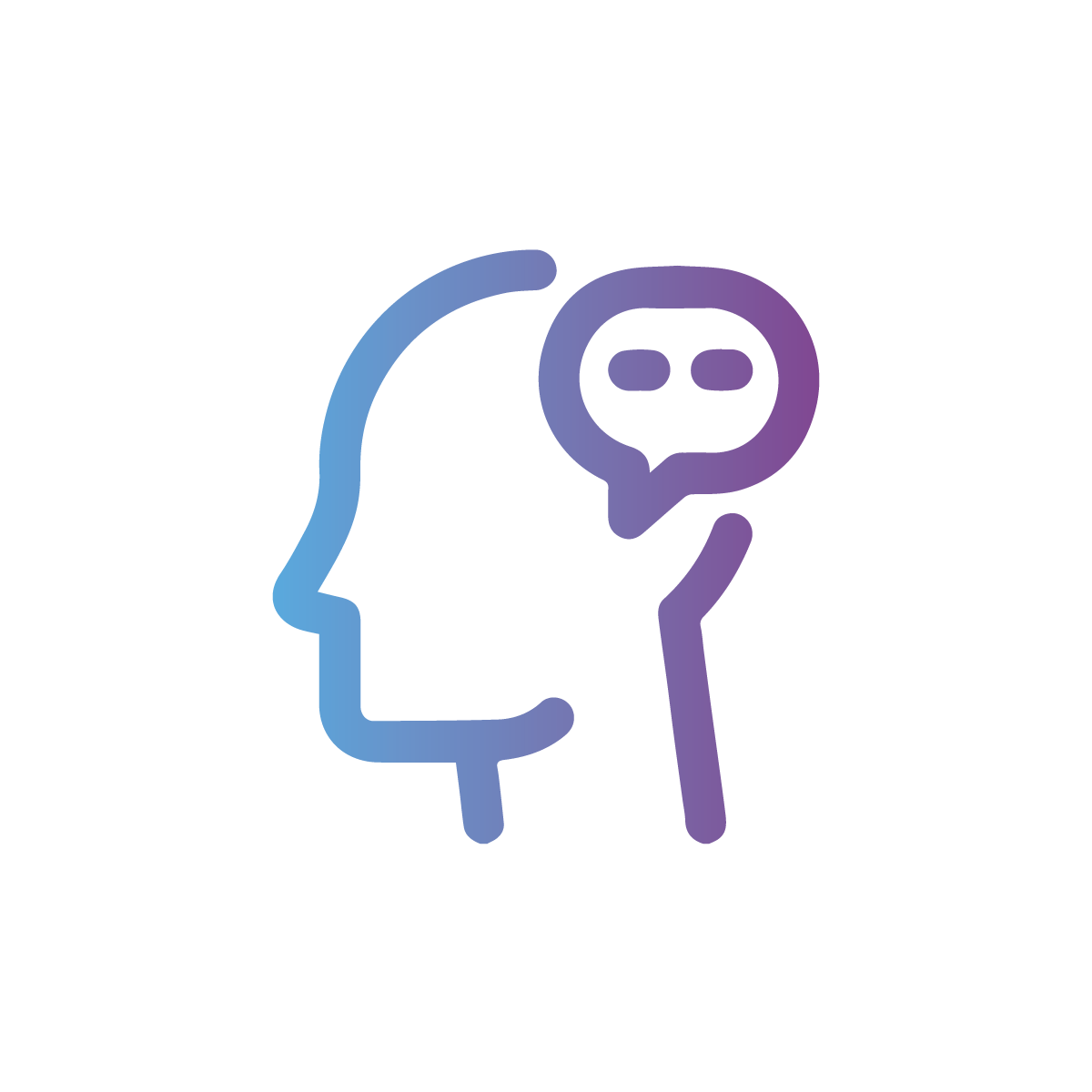
proof of concept
We tested the re:cognition concept, and it looks very promising. Admittedly, there is still a lot to be done before we have a working and workable solution, but for now we are positive.
Background: Bianca sufferd a massive brain haemorrhage which resulted in loss of speech. Read more
(video in Dutch)
brainwaves
Using smart software, with AI as the driving force, brainwaves can be converted to text. re:cognition does this by detecting and recognizing patterns in brainwaves. A user "trains" the software on his or her brain activity.
re:cognition then learns what patterns emerge in the brain when a user thinks about something.
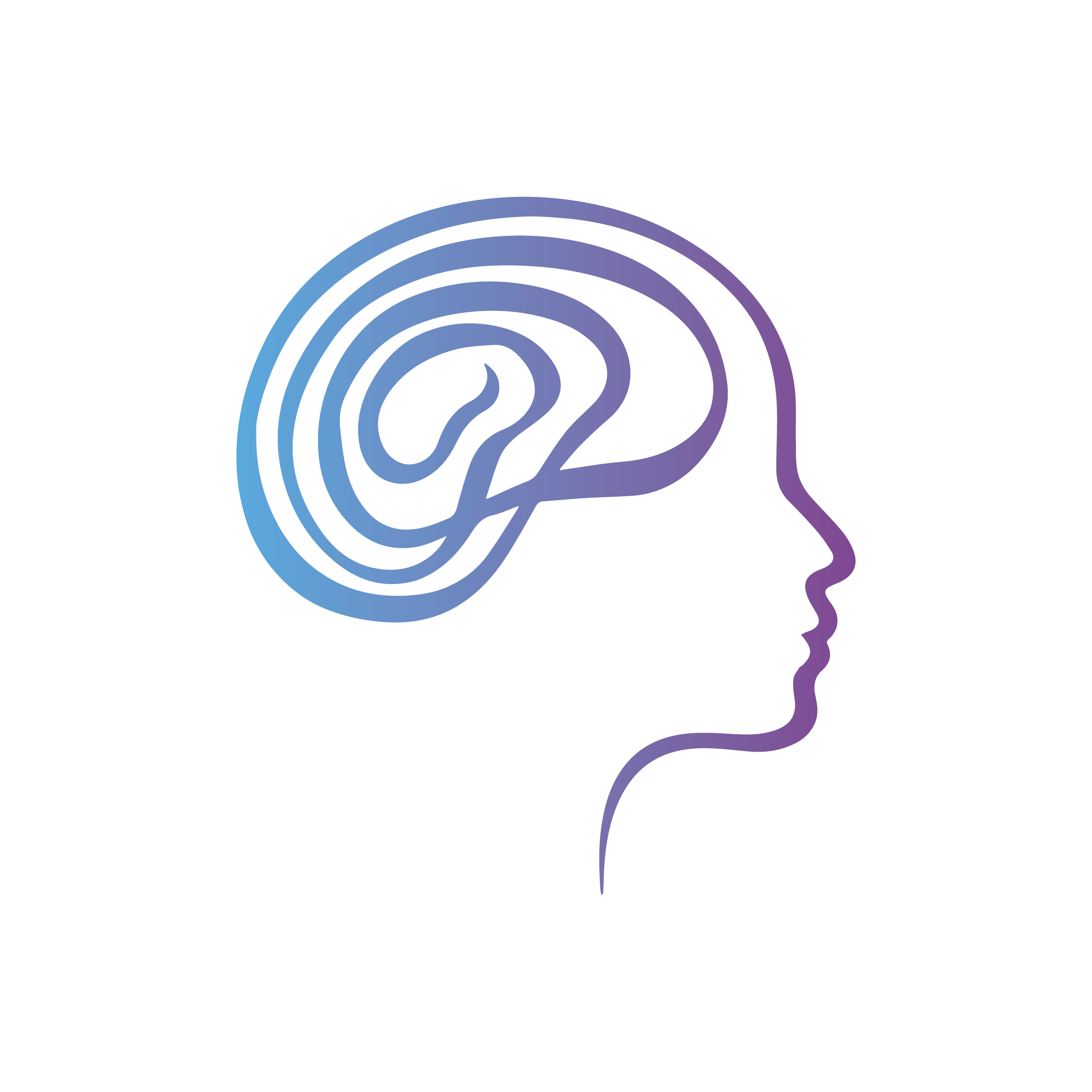
re:cognition in practice
We will give an example. A re:cognition user walks into a café and is in the mood for a cup of coffee. Because the user has trained the software, it knows which brain waves belong to "coffee". And by just thinking, the user, via their smartphone app, can speak the words "I would like one cup of coffee".
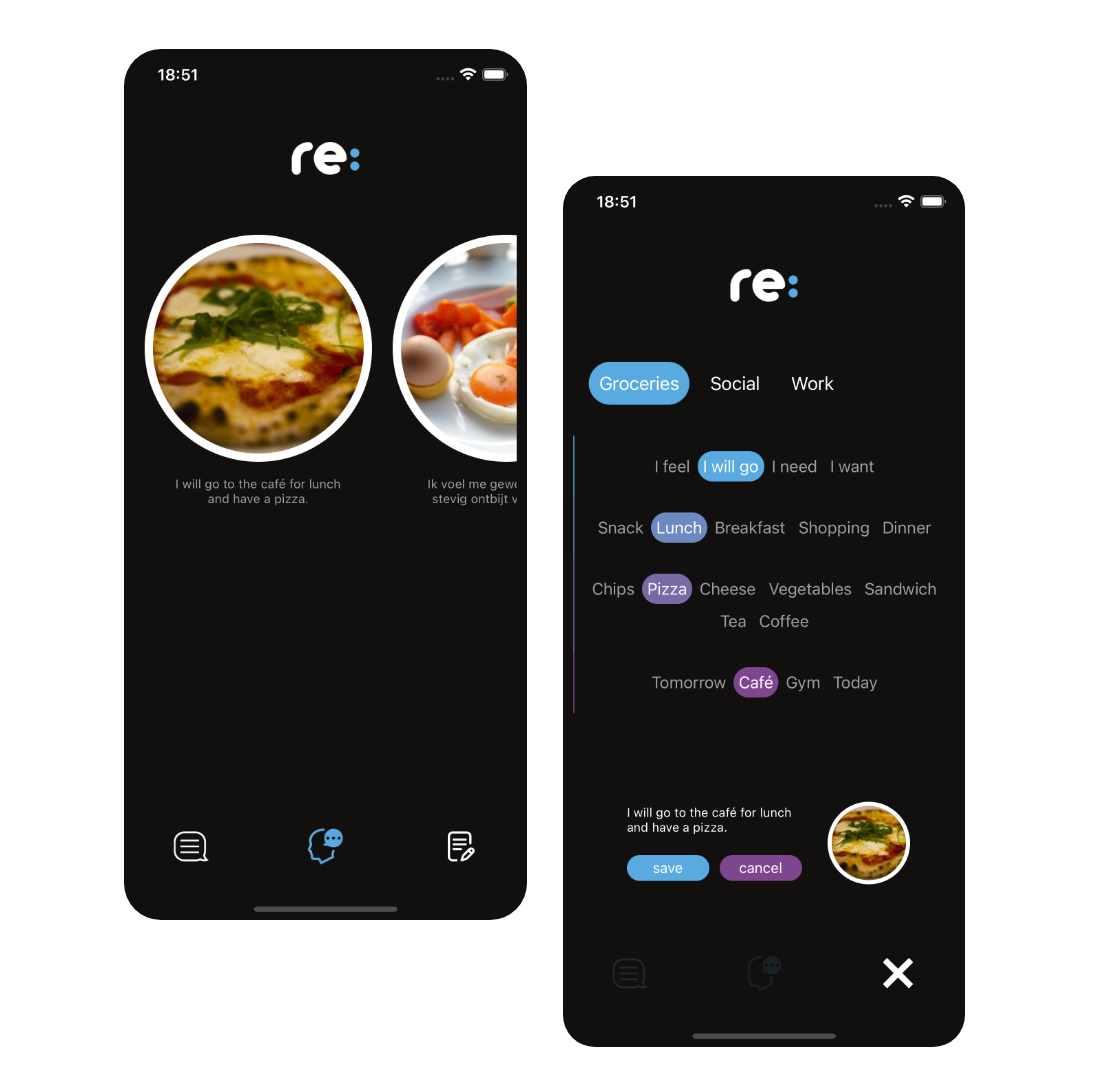
neurosity crown
The Crowntm, a mobile EEG, was developed by American company Neurosity as a productivity tool. The device helps users concentrate and improve their focus. The Crowntm does this by recording brainwaves. re:cognition uses these brainwaves and converts them to text and speech.
The Crowntm is lightweight and easy to use. It weighs only 250 grams and fits on any head.
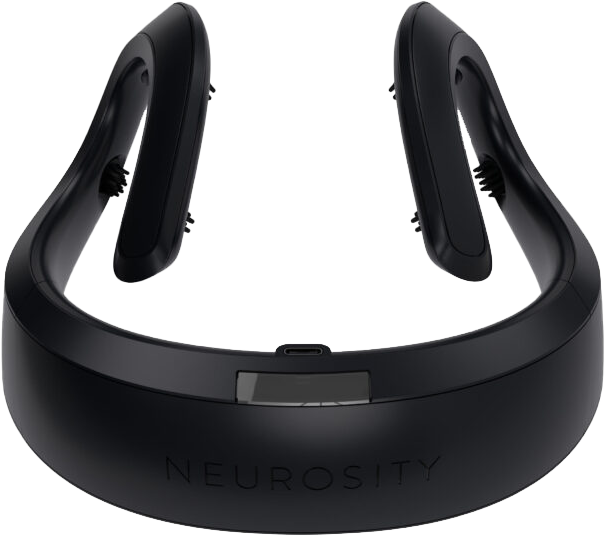
ai for good
Artificial Intelligence is used to generate images, text and code. But AI technology is so powerful that it has the potential to do much more.
And also to do good.
re:cognition is using AI to make society more inclusive and ensure that people with cognitive disabilities, congenital or due to trauma, can participate a little more again.
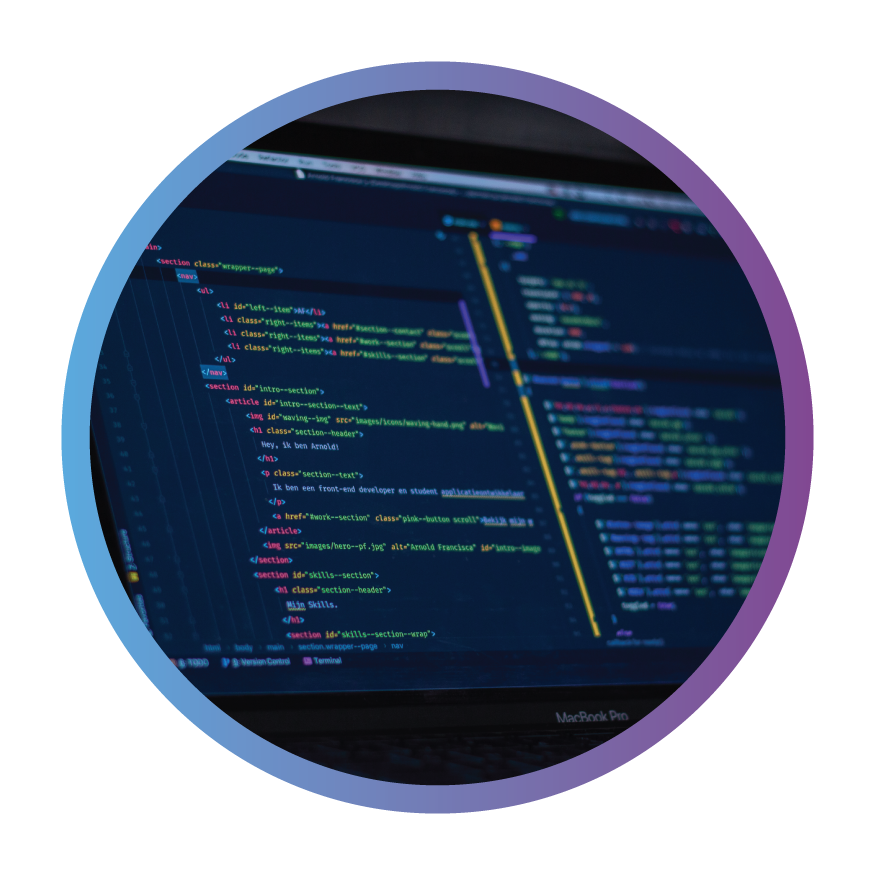
News
26 march 2024
a successful first field test
Last week I conducted the first field test with Bianca. This cheerful lady has suffered a serious brain haemorrhage which drastically reduced her ability to speak.
2 februari 2024
introduction during apg devconf 2024
March 27 is when we will officially announce re:cognition to the world. This will take place during the APG DevConf 2024, where René will have the closing keynote.
8 januari 2024
making a difference
In collaboration with Sofie Sergeant from Disability Studies in the Netherlands, I developed the mobile app "Ebb" in 2018. This app enables people with disabilities to initiate communication in order to take more direction in their lives. More info on Ebb Works. In retrospective, this app can be seen as the prelude to re:cognition .


